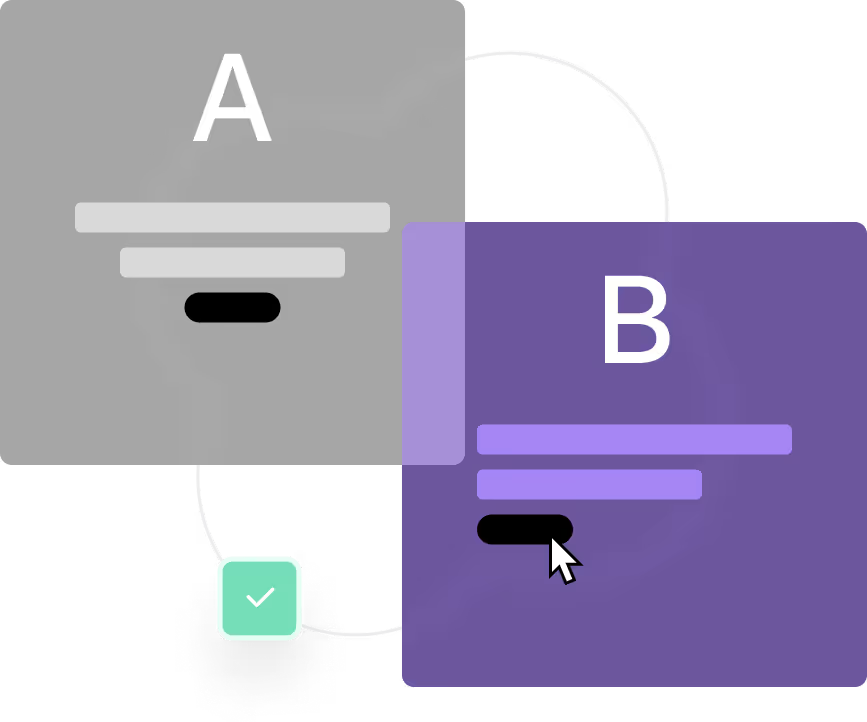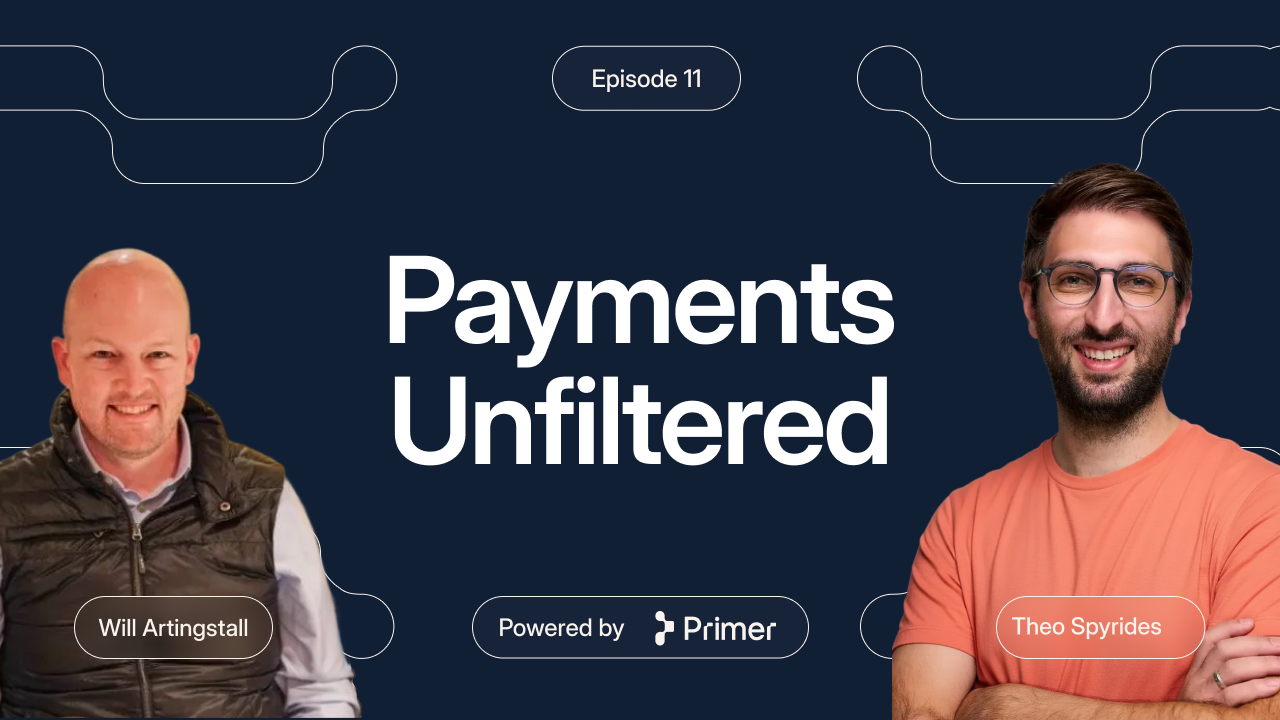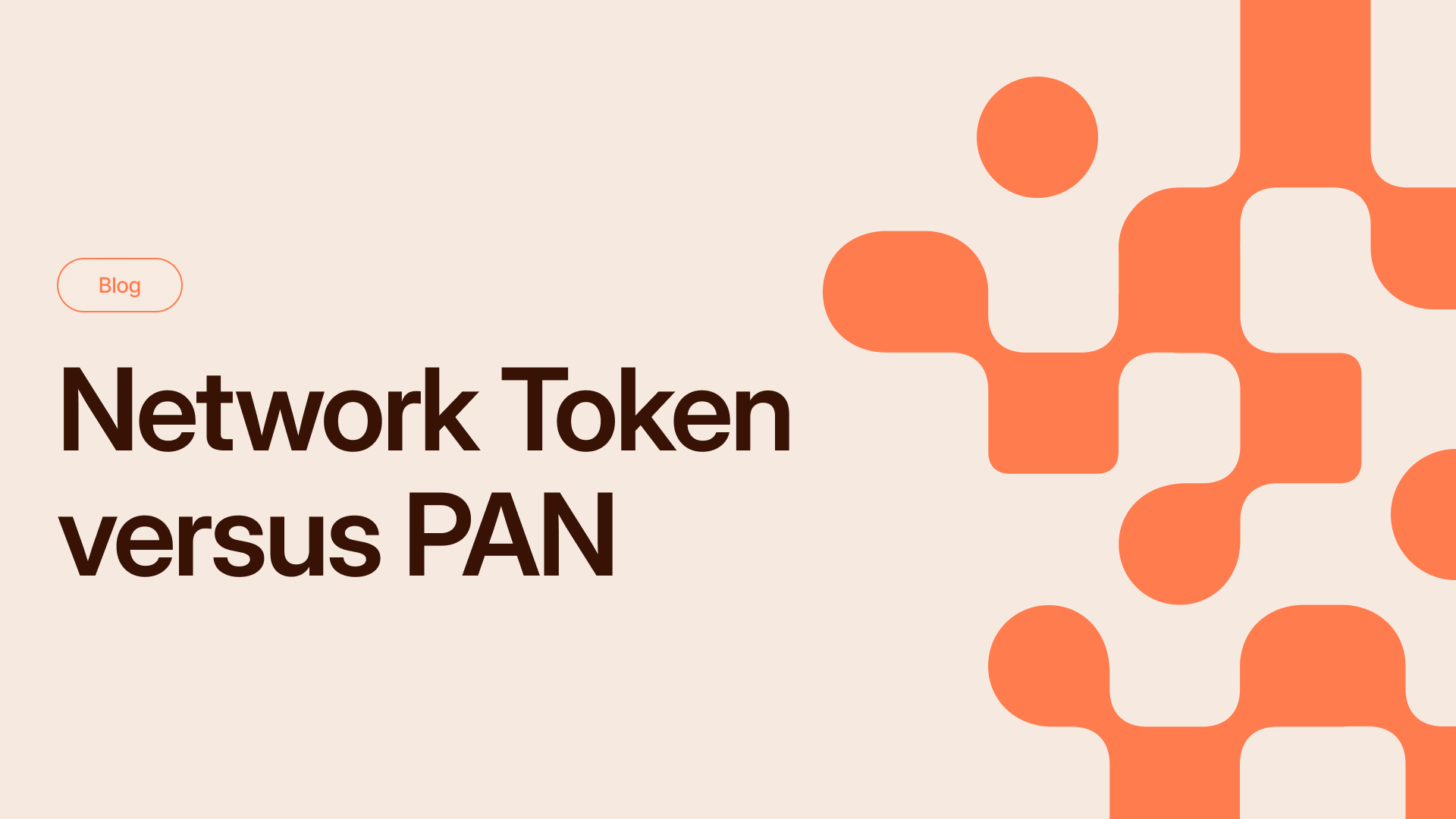You’ve probably felt it already: that creeping sense that your payment stack can’t scale with your business.
Maybe it started with a few failed transactions, a frustrating support experience, or a sudden policy change from your Payment Service Provider (PSP). Or perhaps you haven’t hit those bumps yet, but you’re wondering if your current setup can handle what’s next.
For many startups, choosing a PSP is a box-ticking exercise. You pick one that’s easy to integrate, launch your product, and move on.
But as your business grows, so do the stakes. Payment failures, hidden fees, poor international support, and a lack of fallback options can quietly erode your revenue and create massive operational risk.
In this guide, we’ll break down what a Payment Service Provider actually does, the risks of relying on just one, and how to select the right partners for your business. We’ll also explore why more startups are adopting multi-PSP strategies and how platforms like Primer make it possible to build a robust, scalable payment stack without sinking time and resources into engineering.
Whether you’re launching in a single market or expanding globally, this guide will help you ask the right questions, avoid common pitfalls, and establish a payment setup that matches the ambition of your business.
What is a payment service provider?
A Payment Service Provider allows businesses to accept payments from customers via credit cards, debit cards, digital wallets, and other local or alternative payment methods.
At its core, a PSP’s job is to ensure money moves securely and efficiently between buyers and sellers. They handle everything behind the scenes so your business can accept payments online, in-app, or in-store without building the infrastructure yourself.
Over time, as payments have become more fragmented and complex, PSPs have expanded their services to offer more value to merchants. Here’s what a modern PSP typically provides:
Payment gateway: Think of this as the bridge between your website or app and the financial networks. The gateway securely collects and passes your customer’s payment details to the processor or acquiring bank.
Payment processing: This is the engine room. PSPs manage the full transaction flow, authorizing the payment, moving the funds, and settling the money into your account. They handle the technical and financial legwork between banks, card networks, and other players.
Fraud prevention: Most PSPs offer tools to detect and block fraudulent activity. These can include risk scoring, 3D Secure (3DS), and rules-based systems to catch suspicious behavior or prevent chargebacks.
Currency conversion: PSPs often support multi-currency payments and offer currency conversion tools for businesses that operate internationally. This makes selling in local markets easier and allows you to receive funds in your preferred currency.
Reporting and analytics: Many PSPs provide dashboards and reports to help you track performance, identify where transactions are failing, and make informed decisions about your checkout or payment strategy.
Payouts: Some PSPs also let you send payments. This is useful for platforms, marketplaces, or businesses needing to pay vendors, freelancers, or partners. This means you can manage all your payment flows through a single provider.
How many Payment Service Providers should you use?
More than one. Always.
Using a single Payment Service Provider might seem like the most straightforward option. But it’s also the riskiest. It creates a single point of failure in one of the most critical parts of your business: how you get paid.
It pays to think beyond one provider, even if you’re just launching your business. Payments can fail, systems can go down, and providers can quietly underperform, especially in markets they don’t specialize in.
Other risks of using one PSP include:
- Being locked into their pricing, approval logic, and roadmap
- Having no fallback if they go offline or reject a transaction
- Failing to optimize for different markets, methods, or customer preferences
- Losing negotiating power as your volumes grow
- Getting offboarded without warning if their risk appetite changes
Exactly how many PSPs you should use depends on multiple factors, including:
- Your size and volume: More volume means more leverage and more need for redundancy
- Your geographical footprint: Some PSPs are strong in certain markets and weak in others.
- Your performance targets: If you care about improving conversion, lowering costs, and reducing failed payments, more than one provider will not suffice.
What questions should you ask when selecting a payment service provider?
Choosing a PSP isn’t just about ticking boxes. It’s about finding a partner to support your growth, not slow it down.
Whether you’re launching in one market or scaling globally, the wrong provider can cost you time, revenue, and flexibility. But most providers sound the same until you start asking the right questions.
Here’s a list of practical, high-impact questions to ask before you sign anything, plus what to listen for in their answers.

Can you support my business?
Not every payment provider will work with every kind of company. You can waste weeks on back-and-forth only to get rejected. Or worse, approved but deprioritized because you’re too small.
Some expect you to be already processing a decent volume before they’ll take you on. Others avoid specific industries, like crypto, supplements, or anything high-risk. Others may also dislike business models with negative billing strategies, as they risk high chargebacks. Where your business is incorporated also matters; expect extra checks if you’re based in a smaller or less common market.
Ask them directly: Do you support businesses like mine at this stage, in this industry, or region?
What are your fees, and what’s not included?
Misunderstanding fees is a fast way to destroy your margins, especially once volumes scale. The challenge is that payment pricing can be messy, and it’s rarely just the “per transaction” fee. You’ll want to check for:
- Monthly minimums
- FX or cross-border fees
- Refund and chargeback costs
- Any one-time setup or hidden platform fees
Also, ask how the fees are charged. Some providers use Interchange++ (IC++), which breaks out each cost (interchange, scheme fees, and margin) so you can see exactly what you’re paying for. Others offer blended pricing, which is one all-in rate that, in theory, is easier to understand but is, by definition, less transparent.
Ask them directly: Can you give me a full breakdown of fees based on our expected volume and markets, and explain whether you use IC++ or bundled pricing?
Learn more about reducing payment fees.
Which countries and currencies do you support?
If you’re planning to sell internationally, or even thinking about it, check if the provider supports local currencies and routes payments through local banks (this is called local acquiring, which helps lower costs and improve payment success rates).
But don’t settle for “we support that country.” Ask:
- “How well do you perform there?”
- “Do you have data or examples from similar businesses in those markets?”
Technical support is one thing. Strong local performance is another. And it can make a big difference to your conversion rates.
Ask them directly: Which countries do you support with local acquiring, and how do you perform in those markets for businesses like ours?
What payment methods do you support?
Customers expect more than just card payments. Apple Pay and Google Pay are essential alternative payment mehtods fast-growing businesses that care about user experience, as they reduce friction at checkout and increase conversion.
If you’re targeting specific regions, look out for local favorites:
- iDEAL in the Netherlands
- Bancontact in Belgium
- Boleto in Brazil
- Klarna in parts of Europe
Ignoring local payment preferences tanks conversion. In many countries, not offering the right method means you don’t get paid at all.
Ask which ones are available out of the box, what extra steps are needed to enable them, and whether you need separate contracts or integrations.
Ask them directly: Which local and alternative payment methods do you support out of the box, and what’s required to enable them?
Learn more about deciding what payment mehtods to offer at the online checkout.
What’s the onboarding process?
Some PSPs offer near-instant onboarding. Others follow stricter risk and compliance processes that can take days, or even weeks, especially if you’re a newly incorporated business, operate in a regulated industry, or are based outside Tier 1 markets.
Ask them directly:
- What documentation is required (e.g., incorporation certificates, director ID verification, business model explanations, bank account proofs)?
- How long do typical approvals take?
- What factors could trigger delays or rejections?
What’s the integration process? Can we see the docs?
Your engineering team will thank you for this one. A well-designed API and high-quality documentation can reduce integration time and maintenance overhead. Ask to review the technical docs before committing.
You’re looking for modern RESTful APIs, well-maintained SDKs, predictable versioning, sandbox environments, and comprehensive guides, not just a basic reference sheet. If the documentation is unclear or inconsistent now, that’s a red flag.
Ask them directly: Can we review your API docs before we commit? And what tools do you offer to help us integrate quickly?
What reporting and analytics tools do you offer?
Without real-time visibility, you’ll be flying blind. That means missed revenue, delayed decisions, and painful reconciliation. Ask what kind of dashboard, reporting tools, and export options are available. Bonus points if they offer real-time visibility, API access, and clean reconciliation features.
Ask them directly: Can you show us your reporting dashboard and tools, and explain what insights we’ll get out of the box?
What fraud prevention tools do you offer, and are they included?
Some providers include fraud tools by default. Others charge extra, or worse, leave it up to you. Ask what they do to protect you from fraudulent transactions and chargebacks. Can they block suspicious behavior automatically? Do they support things like 3D Secure or velocity checks? And is it all configurable to your risk appetite?
Ask them directly: What fraud tools do you offer, how do they work, and are they included in the base package or charged separately?
What are the contract terms?
Startups need flexibility. Ask if there’s a long-term contract, volume commitment, or minimum fees. Also, check what’s required to leave. Some providers don’t make porting your payment data or customer tokens easy elsewhere.
Ask them directly: Are there minimum terms, monthly fees, or volume commitments, and how easy is it to switch providers later?”
What kind of support do we get?
When payments stop working, you’ll want answers fast. Ask what support is included and ensure it matches your business's criticality, especially if you’re launching or scaling fast.
Ask them directly: What support do you offer? How quickly can we reach someone? Will we have a dedicated point of contact?
Build a multi-PSP strategy, without the engineering lift
Every decision is a trade-off between speed, cost, and focus for startups. Payments are no different.
Using multiple PSPs can reduce downtime, improve approval rates, and help you optimize for cost and performance.
But building that setup yourself? It’s a time-sink.
You’re looking at significant upfront engineering, plus the ongoing overhead of maintaining multiple integrations.
That’s where payment orchestration comes in.

Instead of investing valuable dev time into connecting and managing multiple providers, orchestration platforms like Primer do the heavy lifting. You get a flexible, scalable payments stack, ready to adapt as you grow without diverting your team from core product work.
As more start-ups learn about payment orchestration, many find themselves getting in contact with Primer.
Primer is a Unified Payment Infrastructure. It allows you to build a robust, multi-PSP payment stack without any of the engineering overhead typically required. We’ve already done the hard work, such as ntegrating with top PSPs, fraud tools, and payment methods, so you don’t have to.
Onboarding a new provider takes days, not months. Once you’re live, you can route payments, reduce fraud, and recover revenue with no-code automation and real-time visibility.
Learn about why Primer is becoming the payment infrastructure of choice for start-ups globally.
Primer’s trusted Payment Service Providers
As already mentioned, Primer has built robust integrations, and strong working relationships, with many of the world’s leading PSPs.
Through our experience supporting high-growth businesses globally, we’ve seen which PSPs typically offer faster setup times and smoother onboarding through Primer. While the right choice will depend on your business needs, these providers are frequently selected by merchants scaling quickly.
Adyen
Headquarters: Amsterdam, Netherlands
Founded: 2006
Coverage: Operates in over 100 countries with local acquiring in multiple regions
Who can open an account: Learn more
Airwallex
Headquarters: Melbourne, Australia
Founded: 2015
Coverage: Supports businesses in Asia-Pacific, Europe, and North America
Who can open an account: Learn more
Braintree
Headquarters: Chicago, United States
Founded: 2007 (acquired by PayPal in 2013)
Coverage: Supports transactions in over 45 countries
Who can open an account: Learn more
Checkout.com
Headquarters: London, United Kingdom
Founded: 2012
Coverage: Operates in over 150 countries with regional acquiring capabilities
Who can open an account: Learn more
Merchant Warrior
Headquarters: Brisbane, Australia
Founded: 2009
Coverage: Focuses on the Australian market with some international coverage
Who can open an account: Learn more
Nuvei
Headquarters: Montreal, Canada
Founded: 2003
Coverage: Operates in over 200 markets with support for local payment methods
Who can open an account: Contact Nuvei for more information.
Stripe
Headquarters: San Francisco, United States
Founded: 2010
Coverage: 195 countries across 135+ currencies
Who can open an account: Learn more
Worldline
Headquarters: Bezons, France
Founded: 1970
Coverage: Primarily operates in Europe with some global reach
Who can open an account: Learn more
Worldpay
Headquarters: London, United Kingdom
Founded: 1989
Coverage: Operates globally with local acquiring in multiple regions
Who can open an account: Learn more




.png)
